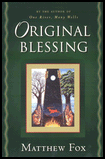Deborah Caldwell of Beliefnet interviewed Marcus Borg about a year ago regarding his book, "The Heart of Christianity". I found Borg's response to Caldwell's question on salvation to be very interesting because it really shows the relation between salvation and establishing the Kingdom of God in the here and now through mission and peace & justice efforts.
I very much like Borg's view that salvation is not about going to heaven and living happily ever after, but rather about healing. I am also fascinated by Borg’s view that relating salvation with going to heaven “impoverishes” the meaning of the word. I believe that the moment you start talking about salvation and heaven in the same sentence, that’s when you start to divide humanity by creating a sort of competition between those who may go to heaven and those who may not.
>>
Question: How do you talk about a word like "salvation" in this new [post-modern] paradigm?
Answer: In the Bible, salvation is mostly concerned with something that happens in this life. Even in the New Testament, the primary meaning of the word "salvation" is transformation in this life. One can see this in the roots of the English word salvation, which comes from "salve," which is a healing ointment. Salvation is about healing. We all grow up wounded, and salvation is about the healing of the roots of existence.
Question: Sounds like a mid-life crisis.
Answer: Well, yeah. And the Bible has specific images of salvation. Salvation is about light in the darkness, liberation from bondage, return from exile, or reconnection with God. It's about our hunger being satisfied, our thirst being quenched, and so forth. The identification of salvation with "going to heaven" in much of popular Christianity not only impoverishes the meaning of salvation but I also think really distorts what being a Christian is all about.
Whenever the afterlife is made central to being Christian, it invariably turns Christianity into a religion of requirements. If there is an afterlife, it doesn't seem fair that everyone gets to go there regardless of what they do before death, so there must be something you have to do or believe. And then suddenly Christianity ceases to be a religion of grace and instead becomes a religion of measuring up to what God requires.


